
Just like this doctor, you may find the letters, photos, and mementos you receive from clients provide a critical pick-me-up when the tough days seem to outweigh the joys of practice.

Just like this doctor, you may find the letters, photos, and mementos you receive from clients provide a critical pick-me-up when the tough days seem to outweigh the joys of practice.
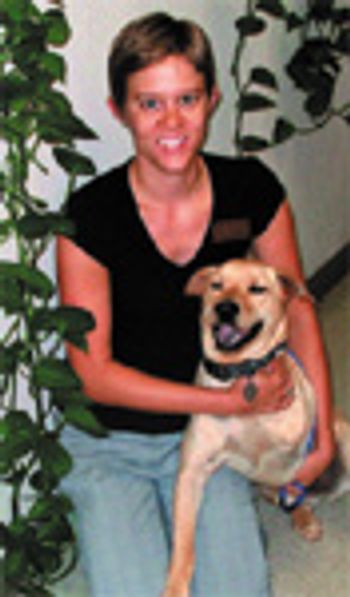
Improve pet dental care with a client brochure.

"Clients like to know their pets will be taken care of by doctors they know and trust in an emergency, so having a doctor on staff 24 hours a day just makes sense to us," says Dr. Tom Nelson, co-owner of Animal Medical Center in Anniston, Ala. "Besides, the nearest emergency clinic is 60 miles away."
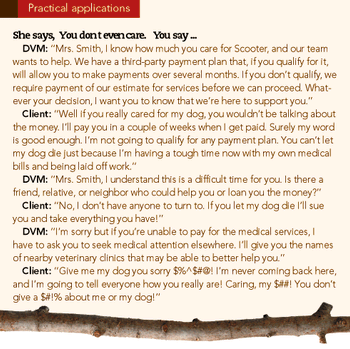
Your client says, "You care more about my money than you do about my pet." How do you respond?
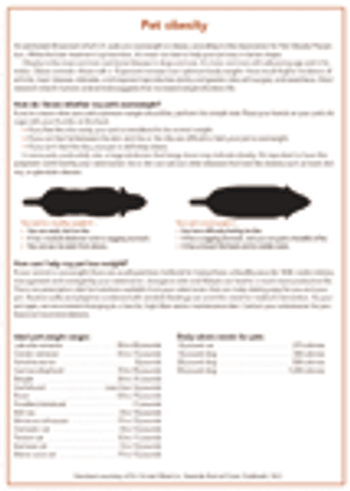
An estimated 45 percent of pets in the United States are overweight or obese. So now's the time to tip the scale in favor of leaner, healthier pets.

This veterinarian's passion for practice-and helicopters-lets him fill a unique niche.
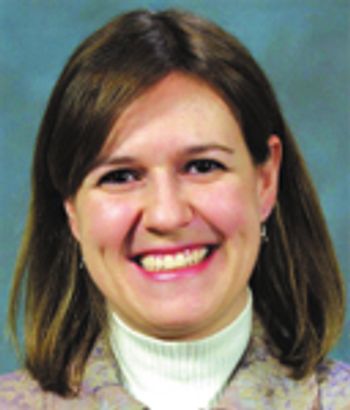
Should we offer walk-in appointments?

Your veterinarian has determined that your dog has allergies to certain substances, such as house dust mites and various grasses and insects, and may benefit from allergen injections to slowly lessen your pet's reaction to the substances. You can easily administer these injections at home.
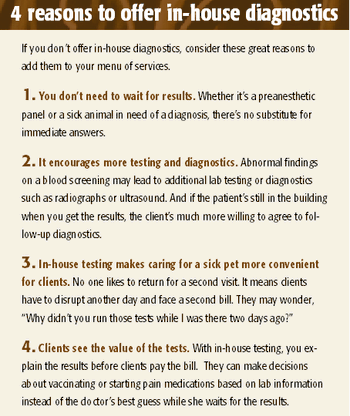
Just whisper the word tests, and clients will flood you with questions: what, when, how much? Try these answers to get the OK.

Everyone goofs up sometimes. But a well-worded apology can help head off some potentially explosive client eruptions.

Taking a half hour or so to input any bundles saves hours and prevents missed income...

Vet Medicine's December 2006 Radiography supplement REVISED

Editor's Note: DVM Newsmagazine asked Cheryl Weber, a grief counselor from the University of Illinois, to share her expertise and advice when a doctor is asked to euthanize a sick animal.

Study data shows that for every 100 job openings, only 96 veterinarians will be ready to fill the spots.

Step back-so you can put your best foot forward

Clients often ask me what they should feed their pets. What should I say?

Looking for some art to fill those empty walls? Check your mailbox! You probably receive a wealth of great artwork from clients every month, says Cheryl Dyer, practice manager at Noah's Ark Animal Clinic in Kansas City, Mo. When patients recover from a serious illness, their pet parents often send a note of thanks with a picture to the practice. Dyer says they frame these photos and hang them in the practice's front lobby.
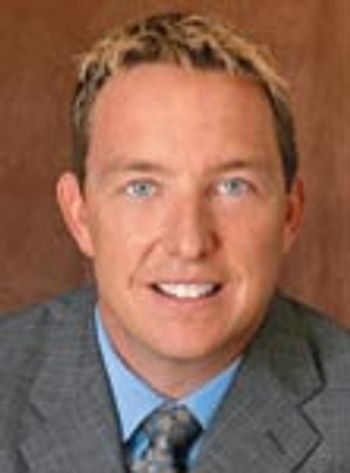
You like people and you like animals. This phrase was probably on your job application, and it's what you tell people when they ask you why you chose to work at a veterinary practice. But is it true? Oh, I know you like pets, but what about people?
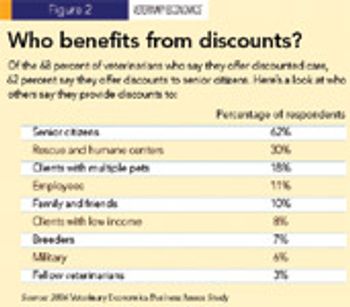
Your colleagues face the same struggle about how and when to help those in need. Here's how they balance the needs of their businesses with their compassion for pets and people.
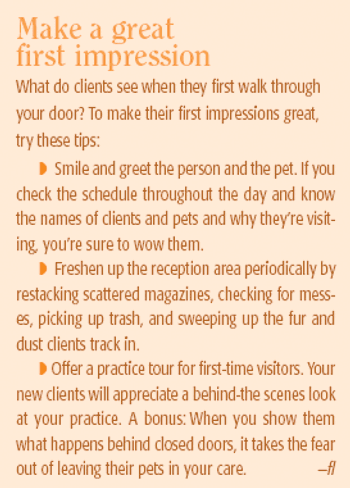
Give the last clients of the day the same warm reception the 40 clients in front of them enjoyed.

Next time you walk into an exam room, look down. Are there curious little faces looking back? They may be small in stature, but children are an important ingredient in pets' health, says Cindy Adams, MSW, PhD, associate professor of communication and epidemiology at the University of Guelph in Ontario, Canada.
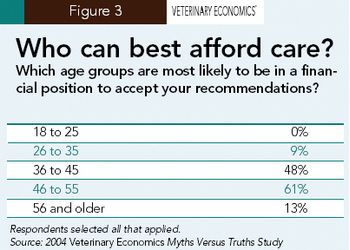
25 percent of practitioners say they start seeing resistance when a bill lands between $200 and $400. But there's no way to know which clients will opt for your "A" plan.
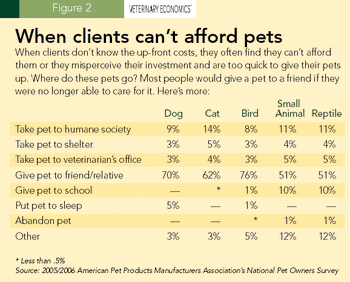
Ward off potential problems by talking about pet costs in advance.
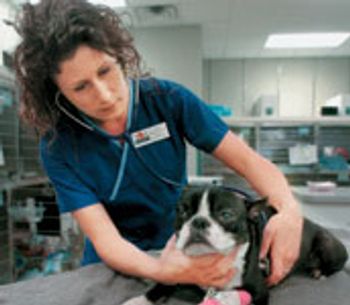
Are you looking for a chance to help pets and people in need? Volunteering is a great way to help others and develop your own skills.

The way you talk to clients about what you charge and why can help your practice provide good care- or block your progress. Do you need to rethink your role?
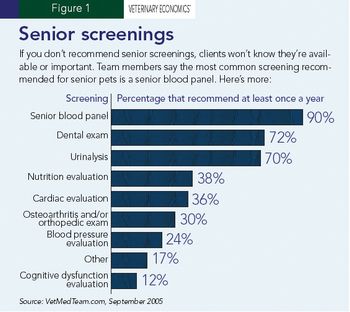
With National Pet Wellness Month around the corner, it's a great time to evaluate how you educate clients about older pets' needs.
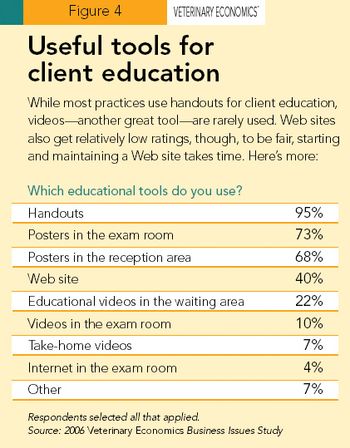
You're pressed for time, but don't shortchange clients by skipping out on educational opportunities.
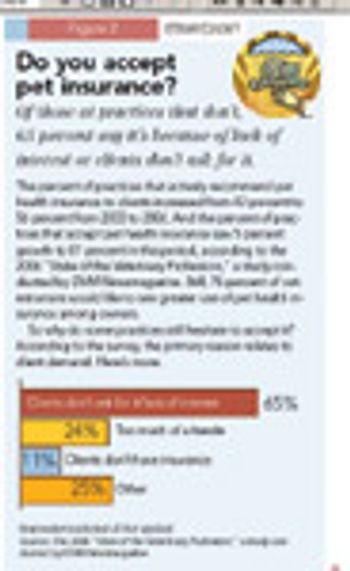
Relatively few clients have pet insurance, but the numbers are steadily rising. And that's a good thing for your business.

Your scheduling software gives you four more defenses against no-shows.